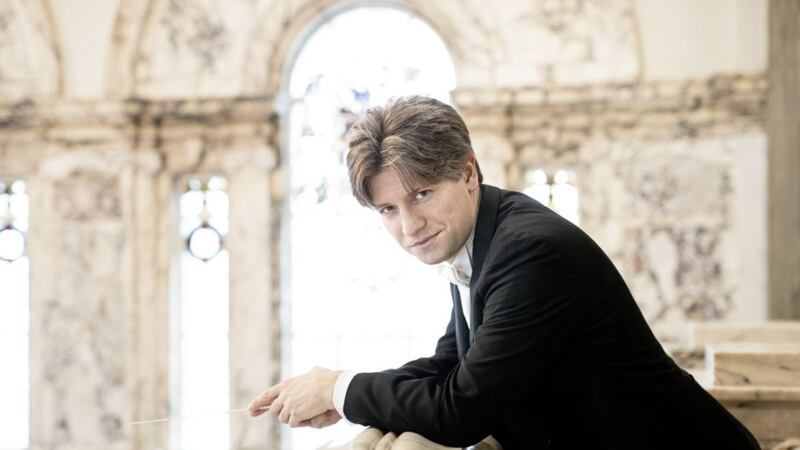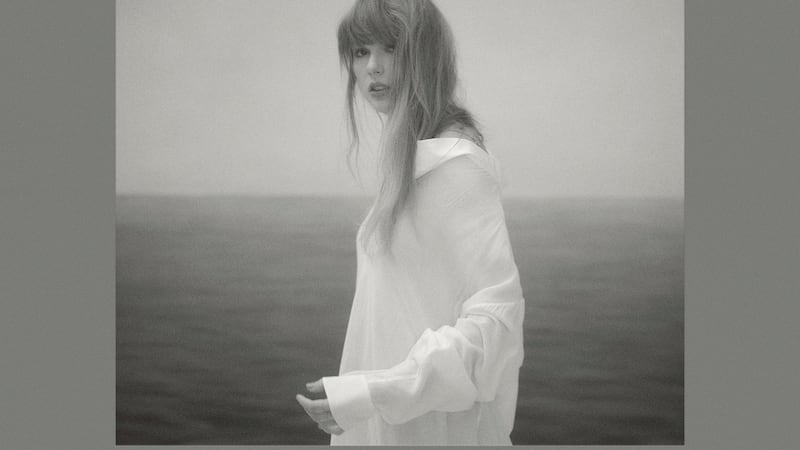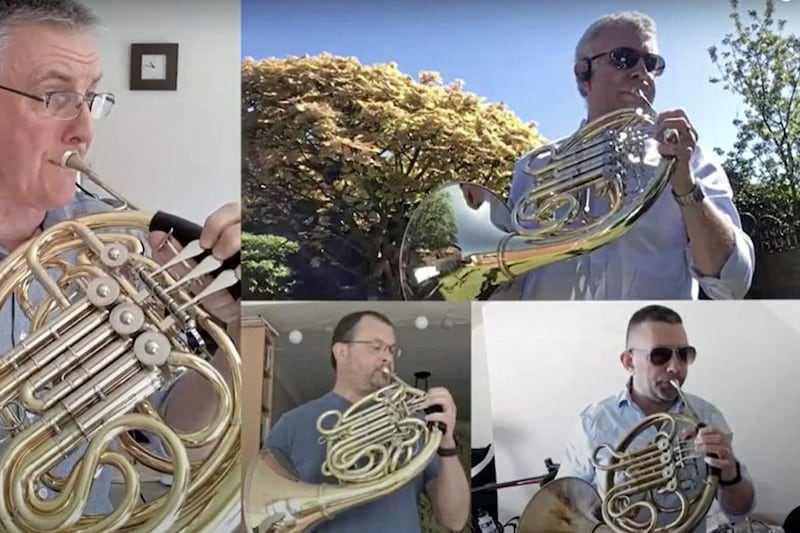IF HIS Italian heritage is anything to go by, Daniele Rustioni, new principal conductor of the Ulster Orchestra, will likely up the tempo and bring a splash of Mediterranean melodrama to the stage for local music lovers.
Certainly, he likes to "jump around a bit" according to a musician friend who has already seen him in action and reported back he was "very entertaining" indeed.
But that will hardly have been Milan-born Rustioni's primary aim, being, as all conductors are, lost in the music to the extent that their own baton-waving gestures play second violin to the musical composition they are driving along with just the precise amount of allegro, accelerando, or whatever else the score demands.
That musical terms are written in Italian is a bonus for the new man on the podium who says he aims to bring a "warmth" to the sound and a "lyricism" to the melodies as he settles into his "musical adventure" in Belfast.
"As the new principal conductor, I bring my personality, experience and vision of the scores," he says. "The sound of an orchestra changes dramatically with different conductors because the musicians 'vibrate' with him, or her, in an almost mysterious way. The first step is to create a strong connection between my gesture and ideas and the musicians, finding a way to breathe together in music."
Appointed chief conductor of the Ulster Orchestra in January this year – his tenure begins this month – the Milanese maestro brings to the post a rich musical background and experience, including roles as principal conductor of Opera National de Lyon in France and the Orchestra della Toscana (Tuscany), holding the latter position since 2011.
In demand worldwide as a versatile conductor of symphonic music, Rustioni also made his American orchestral conducting debut with the Indianapolis Symphony Orchestra this year and has made regular appearances in Japan with the Kyushu and Tokyo Symphony Orchestras.
But although a career in music was always calling, he wasn't entirely clear on what a conductor was or did while in his early teens.
"My first musical experiences are related to the choir and the voice," he says (notably, in impeccable English). "My mother was an alto singer in various choirs and since I was five years old, she brought me along to her rehearsals and concerts. When I was nine, I enrolled in the Boys’ Choir of La Scala Theatre in Milan and then my personal journey began.
"To be part of that choir, I had to study an instrument and musical theory at the Conservatoire, and then, when I was 11, I met Maestro Muti at a rehearsal in La Scala and he made a joke about being a conductor which he said was both "the easiest and most difficult" job in classical music.
"I studied a lot at the Conservatoire 'Giuseppe Verdi' in Milan, but I couldn’t really understand what a conductor was. At 17, I wanted to be an organist, then a pianist, then a repetiteur in opera houses. It was only after studying orchestral conducting and experiences with orchestras as a conductor that I started to think seriously about the profession and when I was 23 I decided that it would be my life."
At that time, he says it was impossible for him to understand what a conductor "does with his arms", but it was made clear to him that preparation and dedication must be absolute before he could, with any authority, stand on that podium.
"There were solid studies in piano, traditional composition (harmony, counterpoint, score analysis), wind instrumentation, choral conducting and, finally, orchestral conducting," Rustioni expands. "I listened to what I was told and, after 10 years, I finished my studies in all those musical disciplines."
Now aged 36, he is married to violinist Francesa Dego (whom he met at the Conservatoire) and the couple are based in London, largely due to the English capital being a "good, strategic middle-way" point on the map between Belfast and Lyon.
"I want to spend more time in Belfast around the weeks of my concerts and participate actively in the educational programmes," he reveals. "I also want to be present more in the social and cultural life of the city. Before arriving here for the first time in 2017, I already had some fantastic friends from the city and, as a tourist, I saw the beauty of nature everywhere in Northern Ireland.
"Of course, I was aware of the [political] conflicts, but when I arrived in Belfast, I just saw a city with a lot of positive energy, investments, great buildings and atmosphere."
His goals for the orchestra are as grandiose as the art and architecture of his home city of Milan and include "taking the orchestra to a higher level" with a new repertoire, forging a new sound in the "superb" Ulster Hall, finding new audiences and hiring some key instrumentalists currently missing from the ranks.
He also wants to increase co-operation with the Belfast Philharmonic Choir, give more attention to educational programmes and boost international visibility with tours, recordings and high profile presence at BBC Proms.
"I conducted three programmes with the Ulster Orchestra before we decided to create this artistic marriage," he says, "and I found a great team with a strong will to grow. I also love the reactions of Belfast audiences – it's true that music is a universal language, but it is also true that every audience reacts in a different way.
"Latin and Mediterranean countries are more extroverted, Germans and Scandinavians may be the opposite. Some audiences follow a concert in religious silence while others might audibly gasp or applaud at the end of every movement of a symphony. It is endlessly fascinating for me because the end product is always produced by the orchestra and audience coming together and influencing each other. That is why every live concert is a unique experience."
At its very best, he says, music can take you anywhere. without ever having to leave your seat.
"With the audience, we can breathe in masterpieces together and travel with our imagination – potentially everywhere," Rustioni enthuses. "Music is never purely descriptive; it is more evocative. It is as though description limits the imagination. That’s where I want to take the audience: everywhere, with no limits."
:: Daniele Rustioni's opening concert (Elgar's Cello Concerto) at the Ulster Hall on September 27 (almost sold out) is followed by Songs of Love and Loss with mezzo-soprano, Christianne Stotijn, and a 'World of Fantasy' concert at the Waterfront Hall on October 26. Info and booking at ulsterorchestra.org.uk







